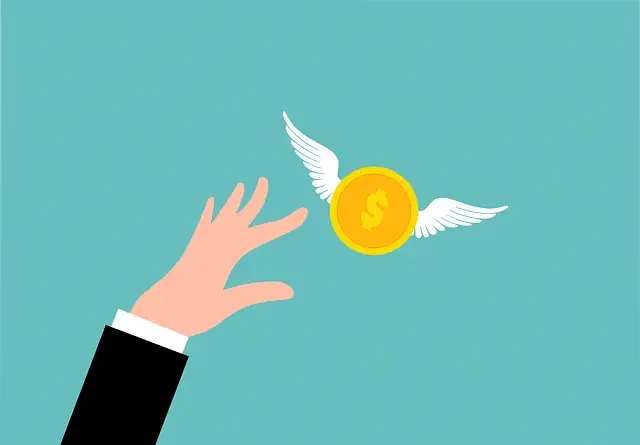Work on better financial habits
No matter how much money you make, it’s important to be mindful of your spending habits. While it can be tempting to splurge on items you don’t need or go out with friends every weekend, developing better habits is key for financial stability.
Start by tracking your expenses and understanding where your money goes each month. A monthly budget will give you an idea of what expenses are necessary and which ones are frivolous. Make a budget and track your spending daily to ensure you stay within that budget. Also, try to pay off credit card debt as soon as possible and avoid making unnecessary purchases or using high-interest credit cards.
Limiting eating out and restricting yourself from buying bottled water can help you save more money in the long run. Meal planning ahead of time can also save you a lot of money compared to buying restaurant meals on a regular basis.
Lastly, resist the urge to buy items because they are popular or trendy; it all adds up over time, even if it is something small like shoes or clothes. Avoiding these bad habits will help put more money back in your pocket for emergencies, vacations, or other goals that you might have set for yourself financially.
Track your spending
Tracking your spending can be an effective way to gain control of your finances and stay on top of your budget. By recording every expense, you can get a clearer picture of where your money is going each month. This helps you identify unnecessary purchases and areas that need to be cut back on in order to save more money.

Start by reviewing your debit cards and credit card statements and categorizing the transactions into different categories like food, entertainment, bills, etc. A single organized document will make it easier to track these expenses throughout the month. Additionally, try to pay off any credit card debt as soon as possible to avoid high interest rates and always know what bills are due when.
By tracking your spending regularly, you can better manage your finances and make smarter decisions with your money. It also allows you to plan ahead for upcoming payments or large expenses such as vacations or new furniture so you don’t go over budget. Being aware of how much you’re spending each month can help ensure that you’re setting yourself up for financial success in the long run.
Set specific savings goals
Setting specific savings goals is important in creating a budget and managing your finances. Having a clear idea of where you want to be financially can help you stay motivated and reach your goals. Start by deciding what you’d like to save for, whether it’s a vacation, retirement, or even a home renovation. Then, set realistic targets for yourself that are achievable within your set timeframe.
Once you have a goal in mind, it’s important to break it down into smaller steps to achieve it more easily. For example, if your goal is to save $10,000 for retirement over the next year, start by setting monthly goals of how much money you need to put aside each month until you reach your target. This will help keep you on track and ensure you reach the milestones necessary for your overall goal.
Finally, remind yourself why this goal is important and why reaching it matters. Whether planning for financial freedom in retirement or taking an incredible vacation with friends and family, visualizing the result can be incredibly motivating and encouraging when times get tough.
Shop from a list
Shopping from a list is one of the best, most reliable methods for avoiding overspending. Before you set out to go shopping, take the time to make a comprehensive list of the items you need. This will help you differentiate between necessary buys and items that may be more of an impulse purchase. Additionally, opt for baskets instead of shopping carts when possible. Shopping with a basket can help limit the amount of space available for unnecessary purchases. Finally, if an item isn’t on your list or something you truly need, resist the temptation to buy it and save money for more important things. Following this simple rule can help keep your spending in check and prevent you from accumulating debt or making bad financial decisions.
Price Shop
Price shopping is an important part of budgeting and smart spending. Shopping around for the best prices on items you need can help you save money in the long run and ensure that you get the most value out of your purchases. Price shopping can be done both online and offline. When shopping online, use tools to compare prices across different retailers. This will allow you to find the best deal for what you need. Additionally, look for coupon codes or other discounts that may be available. When shopping offline, do research ahead of time to know which stores typically offer the lowest prices on certain items. Price shop whenever possible and always make sure to look for deals before making any purchase. By price shopping, you can make sure that every dollar spent counts and that your money goes as far as possible.
Bad Spending Habits

Bad spending habits can be detrimental to both your short- and long-term financial goals. Common bad behaviors include impulse purchases, relying on credit cards, paying for convenience, and shopping for status. Additionally, people often overlook small expenses such as meals out or coffee runs, which can add up to more than you realize.
Don’t Rely on Credit Cards
Relying on credit cards to make ends meet can be a dangerous habit. Not only does it increase the risk of being in debt, but it also prevents individuals from making financial progress. Those who rely heavily on credit cards tend to run up steep interest charges and may find themselves unable to keep up with the minimum payments due each month. Furthermore, relying on credit cards can lead to impulsive buying, overspending, and even more debt.
In order to break this bad habit, individuals should assess their spending habits by creating a budget and tracking their income and expenses each month. Managing monthly expenses such as rent, utilities, groceries, and other necessities is essential for getting out of debt. Individuals should also reduce unnecessary spending, such as cutting back on dining out or canceling unused memberships or services. Additionally, setting realistic goals for paying off debt can help create a plan of action for becoming financially stable again. Finally, resist the urge to use credit cards, which can easily become an addiction if not used responsibly.
Stop Paying for Convenience
Paying for convenience can be costly and add up quickly over time. Whether it’s grabbing an expensive coffee on the way to work or ordering takeout instead of cooking, there are countless ways we pay more for convenience items than we need to. While there may be times when convenience is necessary, taking steps to avoid unnecessary spending can save money and help you reach your financial goals sooner.
Start by assessing where most of your spending goes. Identify areas where you could cut back, such as dining out or buying pre-packaged snacks, meals, or bottled water. Consider packing your own lunch instead of eating out and preparing meals beforehand so they’re ready to grab on busy days. If you have subscriptions or memberships you’re not using, consider canceling them to save money.
Avoid Shopping for Status
Shopping for status can be costly and strain individuals’ finances. Whether it’s spending money on extra clothing, the newest gadgets, or expensive cars, many people are guilty of buying items simply to keep up with others or to gain admiration from peers. While nothing is wrong with wanting nice things, it is important to recognize when shopping habits become excessive and interfere with financial goals.
Before making any purchase, ask yourself if you really need the item and how much it will cost in the long run. Consider whether you are buying something to make yourself feel better or to impress others. If the answer is the latter, try finding other outlets, such as hobbies or volunteering, to boost your self-esteem without costing an arm and a leg. Additionally, research store return policies before buying an item so that you know what options you have if you end up not liking it or not having enough money left over in your budget.
By being mindful of our shopping habits and taking steps to avoid impulsive purchases, we can save money and achieve our financial goals more quickly.
Seek Professional Help
If you are struggling with bad spending habits or other financial challenges, don’t be afraid to seek professional help. Financial advisors, credit counselors, and other financial experts can provide guidance and support to help you improve your finances and achieve your goals.
Improving spending habits is an important step towards achieving financial stability and security – so you can take control of your finances and build a better financial future.